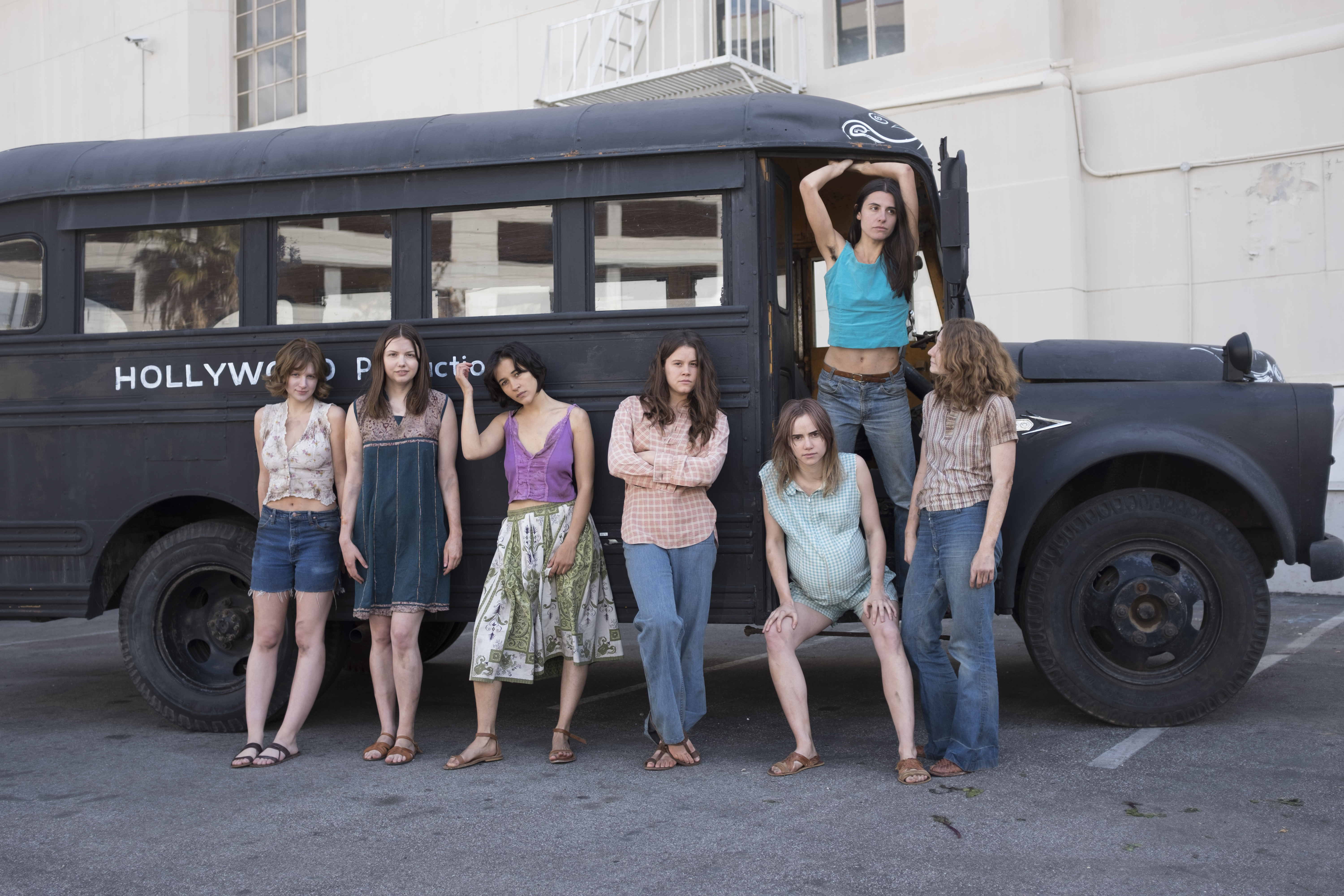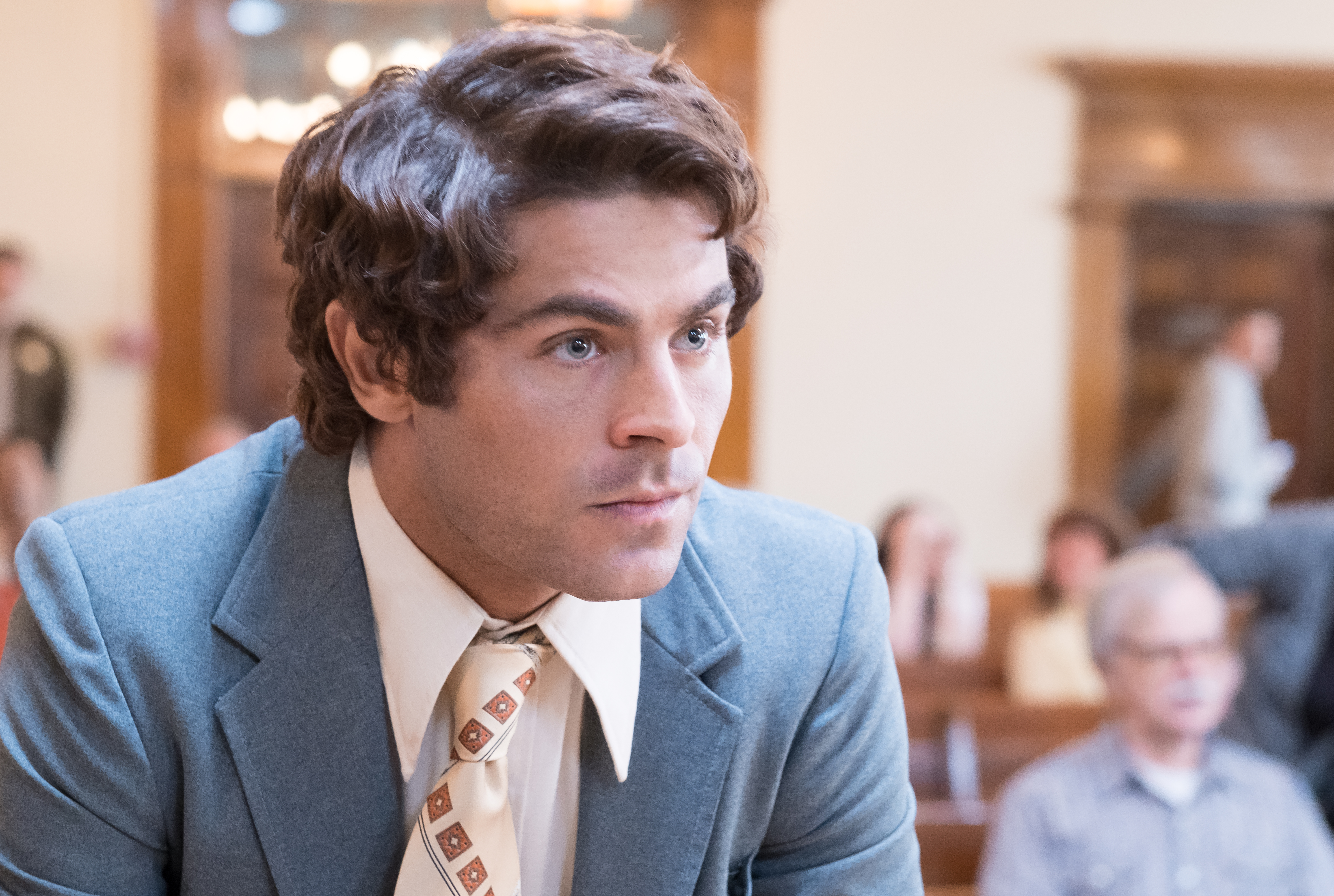
The 2019 Tribeca Film Festival screened not one movie but two that showcase history’s most infamous serial killers: Charles Manson and Ted Bundy.
American Psycho director Mary Harron helms the Manson-focused feature Charlie Says, which sees Matt Smith (The Crown) portray the charismatic cult leader who orchestrated the murders of nine innocents over the course of two months in 1969. And Netflix’s Ted Bundy biopic, Extremely Wicked, Shockingly Evil and Vile, stars Zac Efron as the magnetic, murderous psychopath who confessed to 30 homicides in seven states from 1974 to 1978.
Both films attempt to portray these notorious criminals in a way that doesn’t tread the already worn path so many documentaries, true crime series, and dramatic reenactments have come before.
For Harron, that means focusing on the women lured into Manson’s web of abuse and manipulation. Game of Thrones‘ Hannah Murray, Sosie Bacon, and Marianne Rendon play the trio of girls who aided Manson in the killings, murdering on his command after being indoctrinated into the cult he formed at Spahn Ranch. The film follows their journey as Murray’s Leslie is introduced to life on the commune and slowly falls under its leader’s spell in flashback, while in the present, she’s questioning the events and her memories of them that led to her imprisonment.
Joe Berlinger’s crime drama chooses to center the camera squarely on Efron, who delivers a chilling turn as Bundy, a handsome, educated man who successfully hides his darker impulses from those around him. Lily Collins plays his wife, Liz, and though the film attempts to give us a view of the chaos from her angle, Berlinger can’t help but be drawn to his enigmatic lead. The director seems so enamored with Bundy’s wild tale that he chooses to gloss over the actual crimes he committed — we never see any bloodshed until the film’s closing minutes — in favor of lingering shots of his romance with Liz, his ingenious escape attempts, and his history-making trial.
And that narrative choice is what makes Harron’s film the better, and certainly the more accurate, of the two.
In Charlie Says, the director is able to cut a mythical figure down to size, stripping Manson of vanity and performative veneer to get at the meat of the man. She does this mainly through his interactions with women. In one scene, Manson is taking a bath when a prospective new follower, who he quickly dismisses after the woman challenges him, is introduced.

“I think one thing that I really love about Matthew’s performance was that he showed how insecure Charlie is,” Harron tells UPROXX. “So, when the girl comes and she’s defiant to him, he just can’t handle it. He turns away and you see this kind of weird mixture of annoyance, irritation, and shame in his face. I think that it gives him some nuances that create a really human portrait.”
Though Harron wanted to showcase the qualities that drew people to Manson, she was hyperaware of never making him more than what he was.
“I think it’s not just the darker side, it’s showing the kind of weak side of these men,” the director explains. “If he wasn’t attracting, he could never draw these people to him. If you don’t present that then the story just doesn’t make sense, and the women are completely irrational. If you can’t show him having some effect on people, then the story doesn’t really start. But we have to find the Charlie before he became this public fascination in horror.”
If Harron shies away from making her killer a sex symbol, Berlinger more than leans into it.
Efron, who pulls focus from the women he often shares the screen with in the Netflix biopic, oozes charm and sex appeal. A good majority of the film reads like a twisted rom-com with him courting Collins’ character in a bar, making love to her after a night of drinking, and waking her up with breakfast the next morning. Even when Bundy has been accused of his heinous crimes, the movie spends an inordinate amount of time watching him beg for Liz to believe in him, professing his undying love for her, promising they’ll have the life they always wanted together. It’s almost as if Berlinger himself wants us to question Bundy’s guilt, to look at him with more sympathetic eyes, to swoon over his passionate declarations and suave maneuverings.

While Liz drowns herself in doubt and booze, we see Bundy flourish, hamming it up for the cameras as his trial begins. He finds romance with an old friend, he garners a following of impressionable young women who giddily question their own attraction to him, and he dons a bow-tie and a winning smile in court. Each scene is eaten up by Efron, to the detriment of the story. As captivating as the actor is, and as bizarre as Bundy’s life was, it feels odd, this blatant attempt to garner him some kind of admiration or respect, that Berlinger crafts in the film.
Odd, but not altogether surprising.
Bundy and Manson were both bad men, but they traded on different strengths. For Bundy, those were his good looks, his charm, his everyman persona. He was clever, aware of his effect on women, and able to use both to hide his true nature. Manson was able to cultivate his own following through a philosophy and lifestyle that seemed attractive to people at the time. He fed his groupies hallucinogenic drugs and hollow declarations of love and protection and family while entertaining grand delusions about his own importance. Bundy was a ladies’ man who preferred to hide behind a mask while Manson was a wannabe rock star who needed validation from others. It’s easy to paint Bundy as the more “normal” of the two, but by warping the image of Efron’s character, ignoring his perverted fascinations in favor of showing us what a likable, normal guy he was, Berlinger’s film lacks the depth and integrity that Harron achieves when she chooses to resist the charms of her subject and instead, put the consequences of his reign of terror on full display.
Neither film does particularly well by the victims these men left in their wake, which is another mark against fictionalizing true crime, but if we’re going to continue to be fascinated by terrible men who do terrible things, Harron’s approach feels less problematic.
After all, it’s one thing to be entertained by these stories and the figures who inspire them, it’s another to create a culture of idolization around them.






